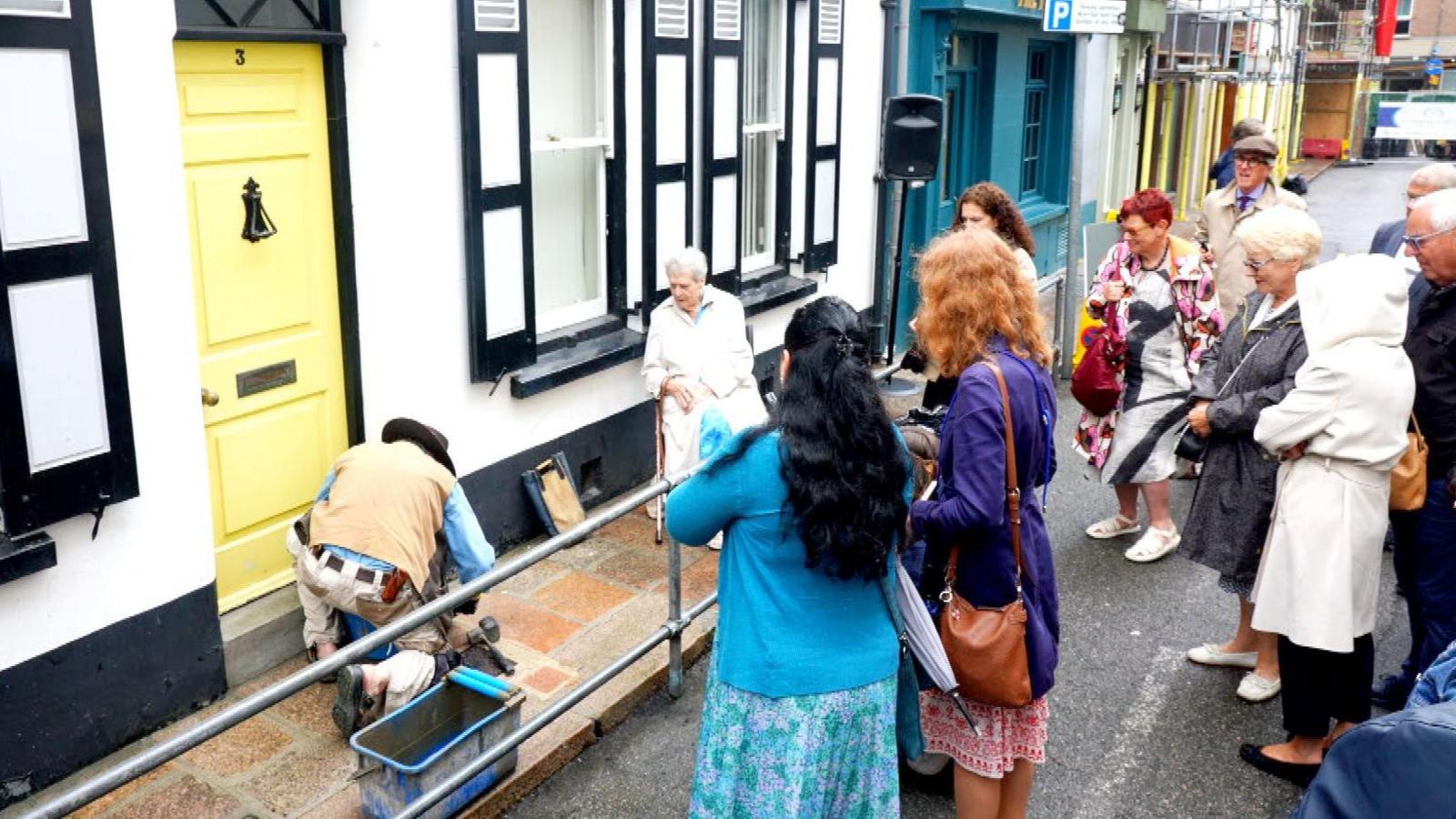Family's Nazi death link leads to German memorial
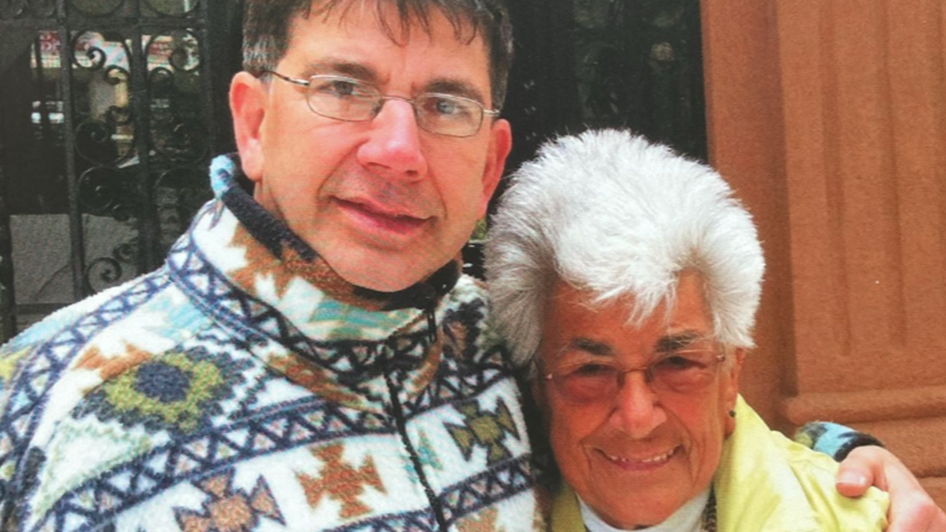
Adrian Kriss said it had been an emotional journey that led up to him finding his mother Rita Devletian and then meeting her
- Published
A man who discovered his grandparents were killed by Nazis and his mother escaped on the Kindertransport has been at a special memorial service in Germany to remember them.
Worcestershire county councillor Adrian Kriss was given up by his mother, but after years of research found she was alive and learnt of his family history.
A Stolpersteine - memorial stone - has been laid in the town of Forst near the home his grandparents were taken from by the Nazis.
"It is very important that we remember and recognise these things so we don't fall back into that type of generational hatred that went on," he said.
The bronze memorial block features his grandparents' names and the date they left Forst in eastern Germany. It was installed at a ceremony with the town's mayor.
"It's to pay those respects to those people we owe our lives to," he said.
Mr Kriss' mother, Rita, managed to flee Germany in 1939 when she was seven, along with her 10-year-old sister, as some of the last children sent to the UK on the Kindertransport, just before the outbreak of World War Two.
The Kindertransport mission unfolded between November 1938 and September 1939 and helped 10,000 children to escape from parts of Europe controlled by the Nazis.
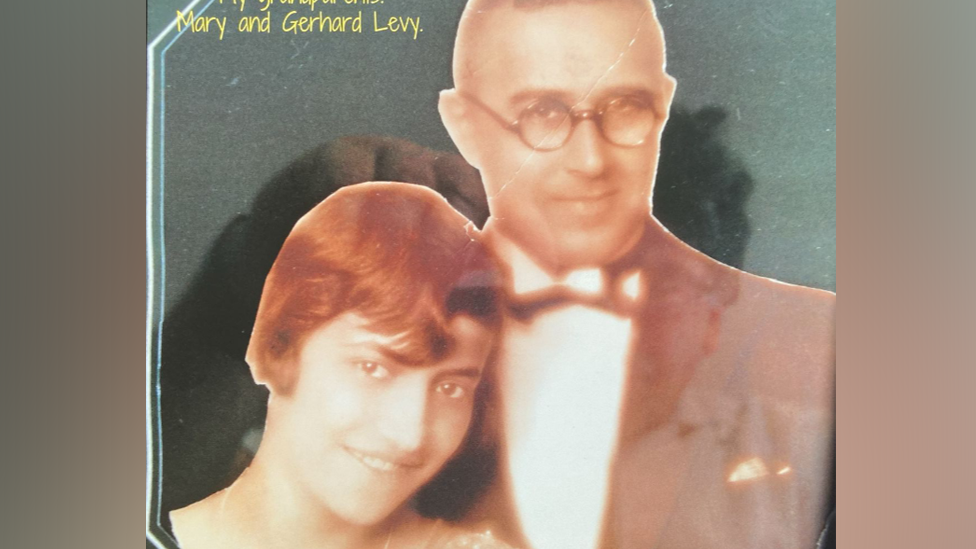
Gerhard and Mary Levy were removed from their home in Forst by the Nazis
Mr Kriss had spent time researching his family history, but it was not until a cousin contacted him out of the blue in 2015 that he made a breakthrough.
From the age of 12, Mr Kriss said he had been told he was adopted and had "a wonderful upbringing" by his family in Birmingham.
The county councillor wanted to find out about any big medical issues within his biological family after his adoptive parents died, so decided to try and locate his real mother or father - but he was not expecting to find out what he did.
"Amazingly in March 2015 a cousin happened to be watching the television and was watching Long Lost Family and decided to look up my name... and she immediately phoned my podiatry surgery in Bromsgrove and from then it opened up a Pandora's box," he said.
She was able to give him the correct name of his mother, which enabled him to do more research and make an astonishing discovery.
"I found that my mother was alive and living in Spain so within a few days I had met my aunt [who lived in the UK] and it seems my aunt and my mother had come over on the Kindertransport in late June in 1939, just before the outbreak of the war."
He said she then went to the USA and after a marriage break-up met someone else and fell pregnant before coming to England.
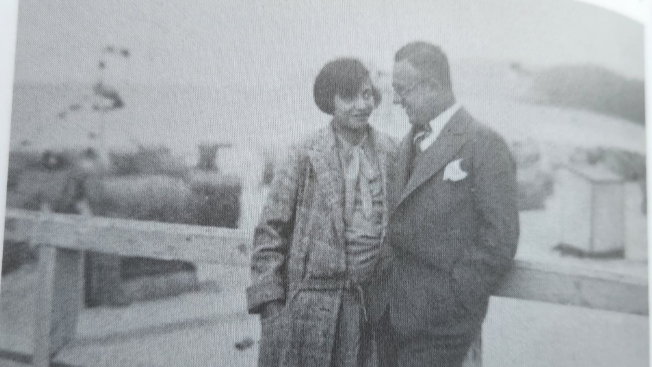
Mr Kriss said it was important to remember what happened to families during the war
"My mother went to a local synagogue in Birmingham and I was adopted by the Kriss family," he said.
Through research, he learned that his grandparents were successful German Jews living in Forst.
But his grandmother was killed at Auschwitz in 1943 and his grandfather died in a labour camp a year earlier after being accused of "laying a hand on a person of Aryan race".
"It's been a very, very emotional trip over the last nine years to get to this point," he added.
Finding his mother after years of searching had seemed an "impossibility" and he said he had experienced an "awakening" of where he had come from.
Mr Kriss said he had previously visited Auschwitz, but "when you realise you had a relative who had been murdered there it changes you completely".
His mother and aunt were "greatly affected" by losing their parents at that age, he added.
He said his grandmother was gassed as soon as she arrived at Auschwitz, aged in her 70s.
"Nobody can ever know what she went through," he said.
"It is very important that we remember and recognise these things so we don't fall back into that type of generational hatred that went on."
Get in touch
Tell us which stories we should cover in Hereford & Worcester
Follow BBC Hereford & Worcester on BBC Sounds, Facebook, external, X, external and Instagram, external.
Related topics
- Published26 July 2024
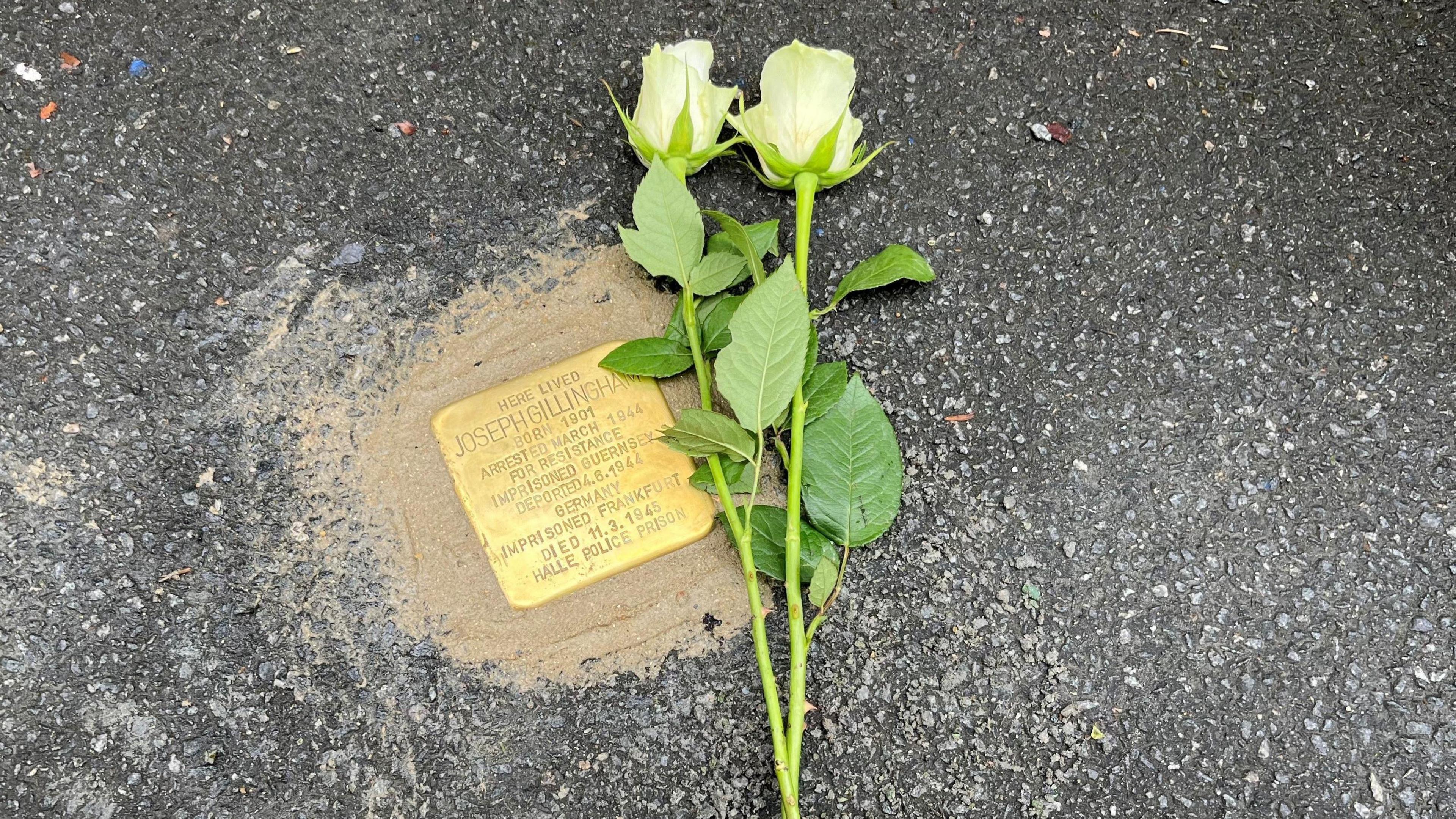
- Published12 June 2024
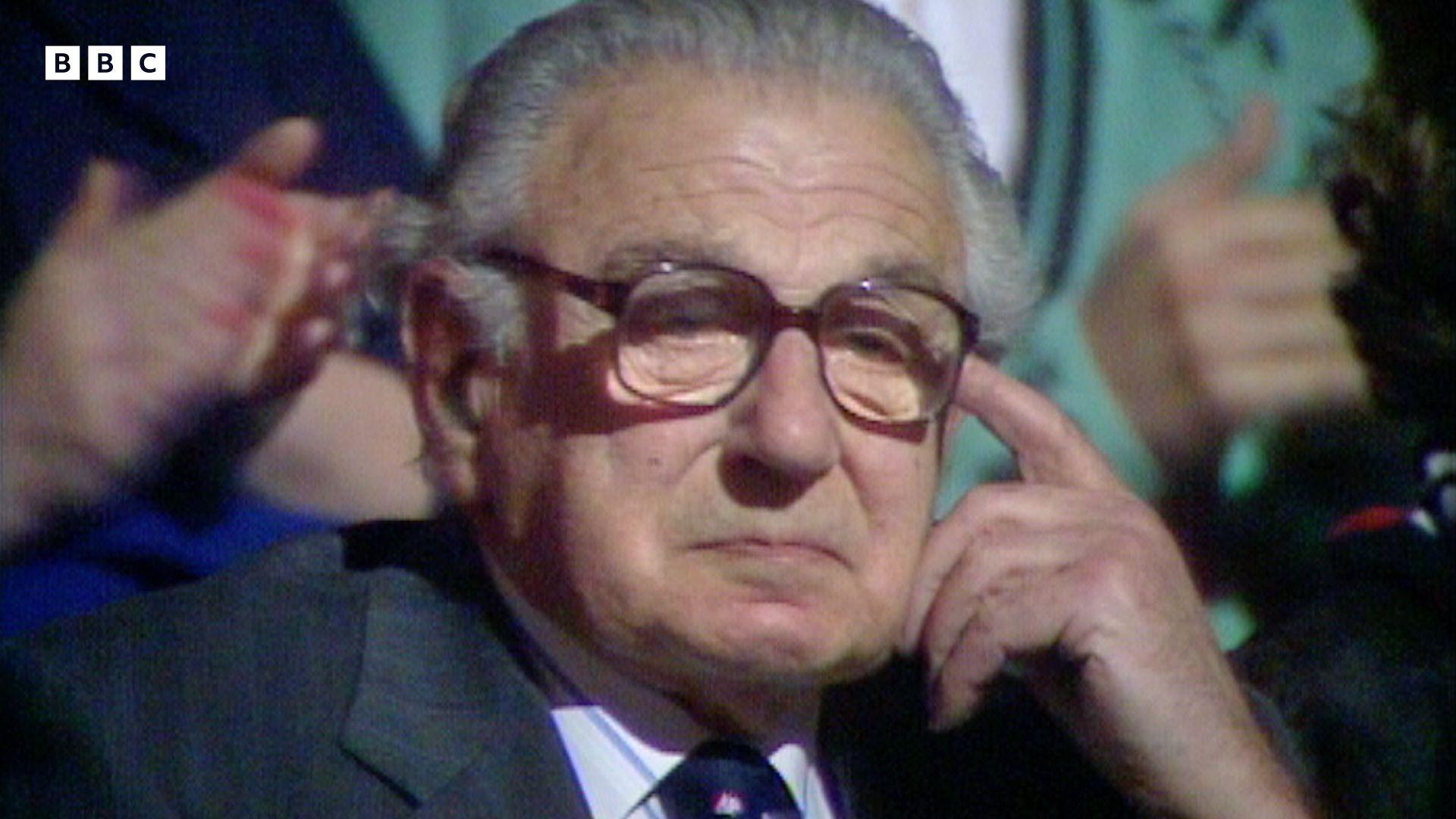
- Published26 July 2024
